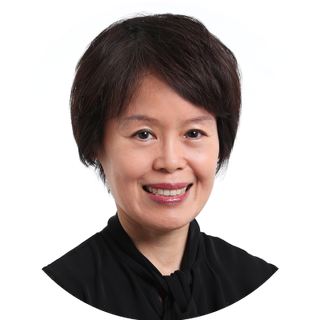Assets in Singapore family offices close to global average
Average AUM of US$857m almost double Asia-Pac figure; S'pore also leads region in succession planning

Singapore
SINGAPORE'S ultra-rich families today manage their wealth with a decidedly professional tinge: more assets are being handled professionally, and over two-thirds of these families are actively planning succession.
A study by UBS and Campden Wealth showed that wealthy Singapore families have nearly twice as much assets managed by family offices (FOs) as their counterparts in the Asia Pacific.
The Global Family Office Report 2017 puts the average assets under management (AUM) of Singapore FOs at US$857 million, compared to US$445 million in the Asia Pacific. The global average AUM of FOs was US$921 million in 2016.
The study surveyed 262 FOs globally, including 42 in the Asia Pacific and 11 in Singapore.
Singapore FOs express keen interest in private investments, which include private equity and co-investment deals, and in impact investing. They were also found to be ahead in terms of succession planning compared to their counterparts in the region.
In terms of portfolio performance in 2016, FOs globally benefited from the upswing in equity returns. Overall returns came in at a healthy 7 per cent compared to just 0.3 per cent in 2015. The robust rebound was thanks to an average allocation of 27 per cent in equities and strong private equity returns. North American FOs generated the strongest return of 7.7 per cent, compared to 6.7 and 6.6 per cent among Asia Pacific and Singapore FOs, respectively.
Said Anurag Mahesh, UBS Wealth Management head of global family office (APAC): "In 2016, Asian FOs diversifying away from their home redialled up risk allocations which resulted in higher equity allocations... (and) markedly improved performance over the prior year. In 2017, given current valuations, Asian FOs are currently focused on risk management and evaluating private equity and credit opportunities as against just public market opportunities, while diversifying away from their home region.''
The global average allocation into private equity was 20.3 per cent. The Asia Pacific allocation was slightly higher at 20.9 per cent, and Singapore FOs at 19.3 per cent.
Globally, real estate is the third largest asset class after equities and private equity, with an average allocation of 16.2 per cent. Among Singapore FOs, real estate is the second largest allocation at 20.4 per cent, in line with the average Asia Pacific FO allocation of 20.3 per cent.
In succession planning, traditionally a taboo subject in Asia, 67 per cent of FOs in Singapore are in the process of developing a succession plan, compared to 29 per cent in Hong Kong. Globally, only a third of families have written succession plans and 14.6 per cent have verbal plans. Nearly half, however, are unprepared for the looming generational wealth transfer. Over the next two decades, an estimated US$2 trillion of wealth globally is expected to be passed to the next generation.
In terms of impact investing, 29 per cent of FOs in Singapore have an exposure. This is higher than the 28.3 per cent global average, and 26.7 per cent in Asia Pacific. Globally over 40 per cent of FOs indicate their intention to raise their impact investments. Of those currently with an exposure, 62 per cent have done so via private investment and 56 per cent through private equity.
Impact investments and those with environmental, social and governance (ESG) themes are expected to be favoured by children born after 1980 .
Patricia Quek, UBS country team head (Singapore ultra high net worth and global family office South-east Asia) said families favour social impact investments in the areas of education, environment and energy. Their challenge, however, is the due diligence required. "They also struggle with the pipeline of good ideas, and they struggle with a strong network to help them look at ideas collectively.'' UBS expects to help clients through its focus on social investments and philanthropy, which includes the Optimus Foundation. The latter is a grantmaking foundation focusing on child health, education and protection.
Earlier this year, UBS in Zurich also announced a five-year plan to scale its expertise to better serve female clients. It has found that by 2021, women investors are expected to invest US$2.3 trillion to improve social good. Ms Quek said half of women billionaires in Asia are self made, compared to 20 per cent in the US and 7 per cent in Europe.
"Because of the (wealth) transfer to women and the amount to be deployed into impact investing, it is more important that gender is well represented in family offices going forward.'' UBS aims to partner educational organisations to "increase the financial confidence'' of 1 million women by 2021.
KEYWORDS IN THIS ARTICLE
BT is now on Telegram!
For daily updates on weekdays and specially selected content for the weekend. Subscribe to t.me/BizTimes
Banking & Finance
Japanese yen slides back towards 34-year low after brief spike
China’s Bank of Communications Q1 profit rises 1.44%
HSBC’s private bank shuts independent asset management business in HK, Singapore
Nomura Q4 net profit jumps almost eight-fold on retail income surge
Rescue pup to meme star: the real-life ‘Dogecoin’ dog
Money laundering accused Zhang Ruijin slapped with 5 more charges days before scheduled guilty plea
